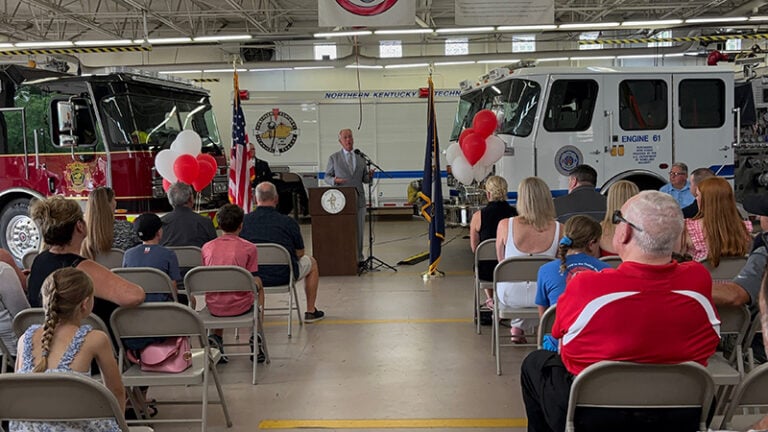It’s time to acknowledge the profound impact that having a loved one behind bars can have on families, especially children.
A growing body of research identifies parental incarceration as an adverse childhood experience (ACE) with substantial negative impacts on children’s well-being. Studies show that children who experience parental incarceration face greater disadvantages in behavioral, educational, and health outcomes compared to those who are not exposed to it.
Considering how challenging this might be for families, Kentucky Youth Advocates (KYA) has created a thoughtful guide for families navigating this situation, offering practical tips to support children and maintain connections in healthy ways.
Below are 10 tips from the guide on supporting children with an incarcerated parent:
- • Acknowledge and validate children’s feelings: It’s important to let kids know that whatever they are feeling—confusion, anger, sadness, or nervousness—is okay and normal.
• Help children decide about visiting: Discuss with your child how they feel about visiting their parent(s) and provide alternative ways to stay connected, such as writing letters or phone/video calls if they feel uncomfortable with in-person visits.
• Prepare children for visits: Talk to your child about what to expect during a visit, including security measures, supervision by staff, and the emotional impact of seeing a parent in prison.
• Offer post-visit support: After a visit, listen to how your child feels, whether it’s sadness or anger, and remind them that all feelings are valid.
• Create conversation starters: Help your child think of topics to talk about with their incarcerated parent, such as favorite activities, friends, or school updates.
• Maintain connection through letters or calls: If visiting isn’t possible, encourage children to write letters or draw pictures and explain how jail phone calls work, including the possibility of time limitations.
• Set realistic expectations: Explain to your child that maintaining a relationship with a parent in prison can be challenging, and it may take time to rebuild or strengthen bonds.
• Reassure children it’s not their fault: Emphasize to children that they are not responsible for their parent’s incarceration and offer emotional support during conversations.
• Communicate with schools and counselors: Consider informing your child’s teachers or counselors about the situation so they can provide additional support if necessary.
• Be patient and understanding: Recognize that incarceration affects the whole family and that your child may experience stress or behavior changes as a result. Be patient and supportive in helping them cope.
Download KYA’s Guide for Families with Incarcerated Loved Ones for additional resources and other helpful information for those impacted by incarceration.
Kentucky Youth Advocates


















